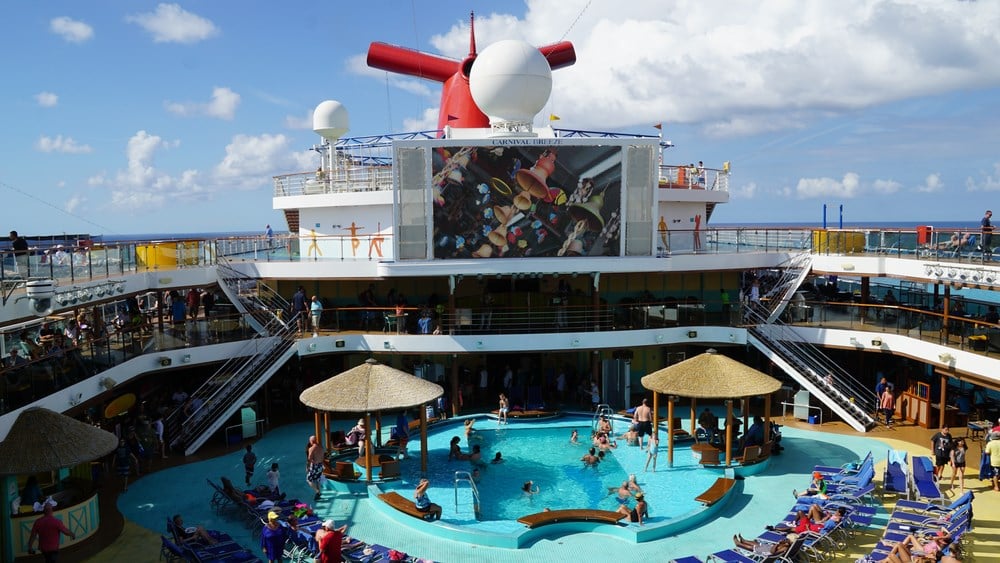
All aboard! Reopening play turned bear market casualty Carnival Corporation & plc (NYSE: CCL) is gearing up for a second trip up the charts. Up approximately 80% over the last three months, shares of the cruise line operator are suddenly the hottest ticket in town.
In an economy challenged by inflation and rising rates, consumers continue to spend on travel — and in particular, cruises. In turn, Carnival’s financial results are floating higher. First-quarter revenue of $4.4 billion marked a post-pandemic high. Based on consensus estimates, top and bottom line results are projected only to get stronger as the year progresses.
Cruise Lines International Association forecasts that 31.5 million passengers will set sail on an ocean cruise this year. That represents a 54% increase over 2022 — and, more importantly, exceeds 2019 levels by 6%. With cruise volume only expected to grow from there, Wall Street is starting to come on board.
On June 11th, after a constructive meeting with management, Bank of America upgraded Carnival to Buy. The same day, J.P. Morgan moved from Neutral to Overweight. Three weeks ago, Citi cited an improving balance sheet in its upgrade to Buy. The flurry of upgrade activity has propelled the stock to its highest level in a year — and past $13 resistance in a convincing fashion.
But for a stock that has seen its share of ups and downs, this could be another high tide awaiting a downturn. Maybe not.
What Is Carnival’s Growth Outlook?
Carnival is benefitting from the natural tailwind of pent-up vacation demand, but it is also doing things on its own to spur interest in tropical getaways. Travel bundles that include flights and rental cars are driving strong booking trends, as are signature all-inclusive on-board deals. Even with prices above pre-pandemic levels, travelers aren’t blinking when it comes to purchasing Carnival cruise packages.
As it shores up its debt-laden balance sheet, rising prices and rising demand is a favorable combination for Carnival. It's also the basis for the Street anticipating 70% revenue growth this year and a return to 2019 revenue levels.
Carnival’s 2023 bottom-line improvement is expected to be even better. Moderating fuel prices, relaxed Covid protocols and a lesser need for promotional discounts are expected to drive a much narrower net loss compared to 2022. Consensus estimates imply that Carnival is on course to return to profitability in 2024.
The market will get its next glimpse of Carnival’s operations on June 26th, when the company releases its second-quarter results. With management forecasting ship occupancy levels north of 98%, shareholders could be in for a big boost. If Carnival tops expectations for the second straight quarter, it could be smooth sailing to a $20 share price.
Does Carnival’s Stock Have Good Upside?
For Carnival’s stock to double from here isn’t unfathomable. Accelerating revenue growth, improving profitability, and stronger cash flow to de-leverage the balance sheet are fundamental positives that could very well keep this momentum story rolling. Another 100% advance from here would roughly return the stock to its post-pandemic peak of $31.52. From there, a return to the pre-pandemic peak of $72.70 could take a few years but is also plausible if current trends continue.
Based on analysts’ revised price targets, however, Carnival may have rough waters ahead. The consensus 12-month target of $13.50 implies a 12% downside from current levels. Even the most bullish target, Bank of America’s $20, suggests the easy money has already been made. An 86 relative strength indicator (RSI) reading and a stock price peeking outside the upper Bollinger Band also point to an imminent pullback.
This month’s Q2 earnings report and those from industry peers Royal Caribbean and Norwegian Cruise Line Holdings are the wild cards, however, and could keep Carnival’s stock moving higher. But with expectations now higher than they’ve ever been in the post-Covid era, a blowout report may be needed to invoke a sea change.
Bottom line: the Carnival buffet line is getting a bit crowded. A near-term pullback seems likely, but powerful demand trends could support a long-term uptrend.




